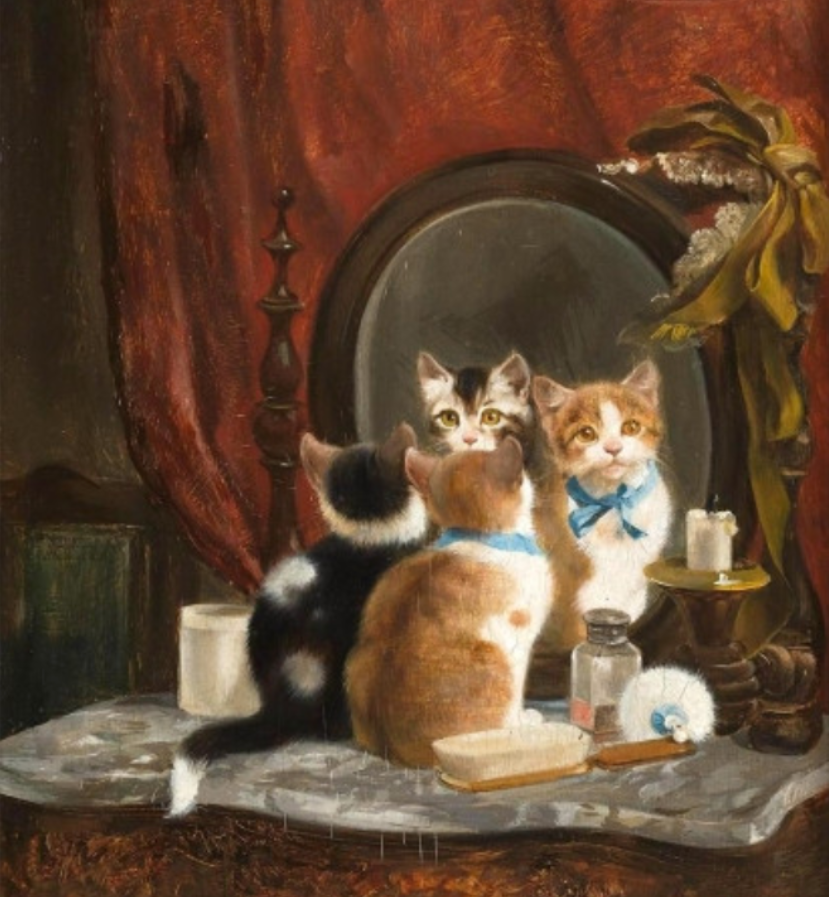Vanity: it’s a word we shy away from, a word which bears negative connotations, an undesirable trait – and yet so many of us are guilty of it. Vanity has been a fundamental human concern for hundreds of years, from subjects asking their painter to depict them in a flattering manner, to makeup and clothing brands making millions off of their customers through overconsumption. It might be that the reason for this is because vanity is simply natural; after all, before a person even opens their mouth, you have formulated a concrete first impression just based on their appearance. For instance, applicants going in for an interview are advised to ‘look their best’ so as to have the best possible chance of securing the job. The very way our society functions is largely based on what meets the eye, so it is only expected that we will do everything to show the world our best possible selves. But today I ask, what lurks in the small print? What negative side effects must we agree to before signing off on this kind of perfectionism, and are they really worth it?
To understand our species, let’s look into our past, to a time before we could conveniently blame beauty standards and filters or carefully purified characteristics seen on social media for the ingrained desire to appear perfect. Prehistoric humans, for example (commonly referred to as “cavemen”), are said to have certainly cared about their appearance too. Though it is difficult to know if they monitored their looks in the modern sense, evidence suggests that they did care how they were perceived by others in social groups; sound familiar? The way we are perceived and treated by the world plays a fundamental role in how we feel about ourselves, and by conforming to a norm of society in how we look and act, we ensure better treatment and representation in a social circle, just as our ancestors did. In a way it is what makes us human.
When searching for why, as humans, we require this validation, a conspicuous culprit is our own self worth and where we derive it from. Many people automatically feel better about themselves when they like and identify with the image that meets them in the mirror. They feel prepared to face the world and feel comfortable in who they are. This is perfectly understandable when other factors such as friends, family, hobbies and interests also build up towards one’s identity, as one receives at least part of the way they view themselves from within, and not just from how they are treated by the outer world. It is when the ties between appearance, both physical and other, and self esteem become too close that it is important to take a step back and focus on the other key factors of your persona.
Furthermore, while beauty and youth are ultimately highlighted in a positive manner in today’s society, demonstrated through the rise of Botox and an overuse of makeup, in the end, as many great poets and authors have said, time is the ultimate authority, for better or worse. Time heals and gives us the power to leave things behind, but it also causes us heartbreak as we see things from the past being taken away from us, one of which is youth. This is why it is crucial to ensure that your sense of self is built on a strong and time-withstanding base.
On the other hand, presenting a look which best illustrates who you are can be a great form of self expression and allow people to feel seen and understood. It might even be construed as a quick and easy way to prove yourself, as putting together an aesthetic or doing your makeup in the morning can be fun and interesting. In this sense, vanity promotes confidence and peace in how you look, which is a great way to boost your mood and therefore your mental health and productivity. A study recently found that the idea of “dressing to impress”, an idiom that has existed for decades, is actually a founded statement, as people who dress with intention are found to have increased productivity in the workplace. (Katie Brenneman)
Another key aspect of vanity is that it is often associated simply with physical appearance; it is, in fact, a word which encompasses a general sense of overinflated pride in oneself. So why and how is vanity ingrained within our society? And is it really so bad?
Scottish philosopher Adam Smith viewed vanity as the very thread which holds society together. He claimed that seeing yourself in the eyes of others is subjecting yourself to the judgment of humanity; a worthwhile pursuit in the search for morality, as it holds one accountable for actions and keeps us from descending into anarchy. Acting as we want to be perceived enables moral social interactions and promotes acts of kindness and generosity, and Smith claimed that vanity is our reward for acting in a way worthy of admiration.
His sometimes counterpart, however, French philosopher Jean-Jacques Rousseau, viewed vanity as an incurable flaw stemming from our highly stocked value in the opinions of others. He called this “amour propre”: the need to shine in the eyes of others. As time went on (according to Rousseau) humans became more invested in the concept and incapable of individual self assessment. Claiming that masks and facades grew pasted on so thickly that we lost touch with our true selves. Rousseau believed that as the most pretty or talented individual became the most valued, people began to seek those traits; however, they no longer cared about the virtues themselves, but rather the positive perceptions they found themselves associated with.
Rousseau’s way of thinking interlinks with modern day American author, Kurt Vonnegut, who is known for his dark humor and sarcasm. In his third novel, Mother Night, Vonnegut claims, “we are what we pretend to be, so we must be careful about what we pretend to be.” (Vonnegut 2) Through this excerpt, Vonnegut was commenting on how our identities and behaviors are shaped by the roles we take on in life. When we pretend to be something we’re not—whether it’s adopting a persona, putting on a façade, or acting in ways that don’t align with our true selves—we can start to internalize those behaviors and beliefs. He warns us to be mindful of the roles we choose.
Ultimately, the essential thing to understand about vanity is that, as with most things in life, finding a balance is key. While it is inadvisable to leave your house as though you have just woken up, there is also no point in picking apart every aspect of yourself. Furthermore, it is crucial to remain true to yourself and ensure that your actions reflect who you truly are. While wearing your heart on your sleeve can lead to vulnerability and may be dangerous, the image you present to others should not be totally fake and should always encompass your core values. Vanity is an integral part of society; whether we deem it positively or negatively, it is a human trait and not likely to change any time soon. So make the most of your vanity – but keep it from using up all of your time.
Bibliography
Brenneman, Katie, and Carl Pullein. “The Subtle Impact of Physical Appearance on Productivity and Success. — Carl Pullein.” Carl Pullein, 13 March 2024, https://www.carlpullein.com/blog/the-subtle-impact-of-physical-appearance-on-productivity-and-success/13/3/2024. Accessed 3 October 2024.
Fishwick, Carmen, and Janne Iivonen. “I, narcissist – vanity, social media, and the human condition.” The Guardian, 17 March 2016, https://www.theguardian.com/world/2016/mar/17/i-narcissist-vanity-social-media-and-the-human-condition. Accessed 3 October 2024.
“The science of happiness at work: How positive psychology can increase productivity | Penn LPS Online.” Penn LPS Online, 6 October 2023, https://lpsonline.sas.upenn.edu/features/science-happiness-work-how-positive-psychology-can-increase-productivity. Accessed 3 October 2024.
“You’re so vain but here’s why that’s a good thing.” BBC, 2 September 2024, https://www.bbc.com/reel/video/p0jn44z8/you-re-so-vain-but-here-s-why-that-s-a-good-thing. Accessed 3 October 2024.

